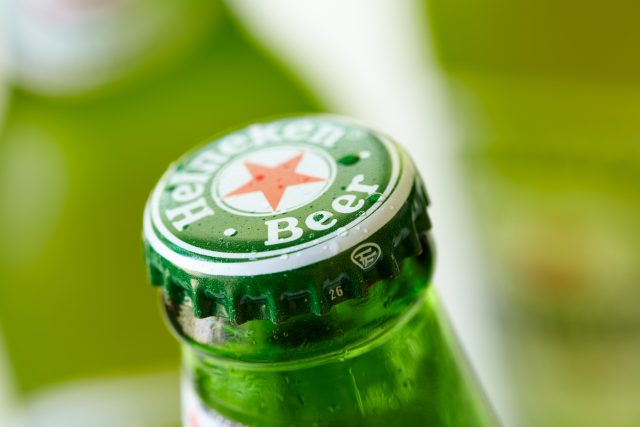This website uses cookies so that we can provide you with the best user experience possible. Cookie information is stored in your browser and performs functions such as recognising you when you return to our website and helping our team to understand which sections of the website you find most interesting and useful.
Heineken sells its Russian business for €1
Eighteen months after it pledged to pull out of Russia following the invasion of Ukraine, the world’s second largest brewer, Heineken, has concluded the sale of its interests in the country.

Heineken had faced mounting international criticism about the time it took to negotiate its exit but it has agreed to sell the business, which includes seven breweries and 1,800 employees, to Russia’s Arnest Group for €1.
Arnest owns a major can packaging businesses and is the largest Russian manufacturer of aerosols. It also produces cosmetics and household goods.
“While it took much longer than we had hoped, this transaction secures the livelihoods of our employees and allows us to exit the country in a responsible manner,” Heineken’s chief executive Dolf van den Brink said.
He would not go into details as to why the search for a buyer took longer than first thought, saying the process had been “highly complex”.
In April, the drinks business reported that a buyer for the beer giant’s Russian business had been secured but that Heineken refused to name the buyer.
The deal leaves Heineken with exceptional losses of €300 million (US$324.8 million). There is also no option allowing it to recover its Russian interests if international sanctions are removed.
In the run up to concluding the sale, Heineken had ceased supplying the Russian market with brands such as Heineken and Miller but Amstel has remained available to maintain the local business and shield staff in Russia from possible prosecution.
Van den Brink said the company had been very aware that Russian President Vladimir Putin signed a decree in July seizing Dutch group Carlsberg’s stake in a local brewer.
Carlsberg confirmed it had exited Russia in June this year, following a “highly complex separation and selling process”.
The Heineken brand was removed from Russia last year and production of Amstel will now be phased out within six months.
Heineken said its full-year 2023 outlook would not be affected by the sale. The Russian business, which produced about 10 million hectolitres of beer, represented about 4% of its global volumes.
“It was key to get the vast majority of our international brands out because we didn’t want them to stay in the country,” Van der Brink said.
Heineken said there would be a three-year licence for “some smaller regional brands which are required to ensure business continuity and secure transaction approval”.
However, it will provide no brand support and receive no earnings, royalties or fees from Russia.
The world’s biggest brewer, Belgium-based Anheuser-Busch InBev, has also said it plans to exit its joint venture in Russia with Turkey’s Efes (AEFES.IS).
Earlier this summer Heineken gained full operational control of India’s United Breweries following the acquisition of additional shares in the Kingfisher lager owner in June.
United Breweries was once the flagship company of disgraced tycoon Vijay Mallya, who fled India for the UK in March 2016 to avoid arrest on charges of fraud and money laundering.
In February 2023 it was revealed that Bill Gates had bought a 3.76% stake in Heineken Holding NV, worth €850 million.

